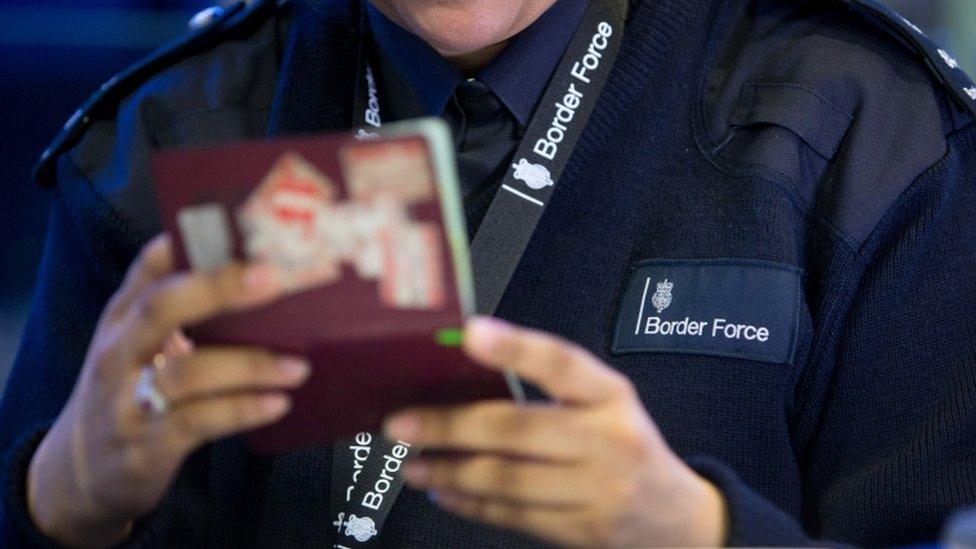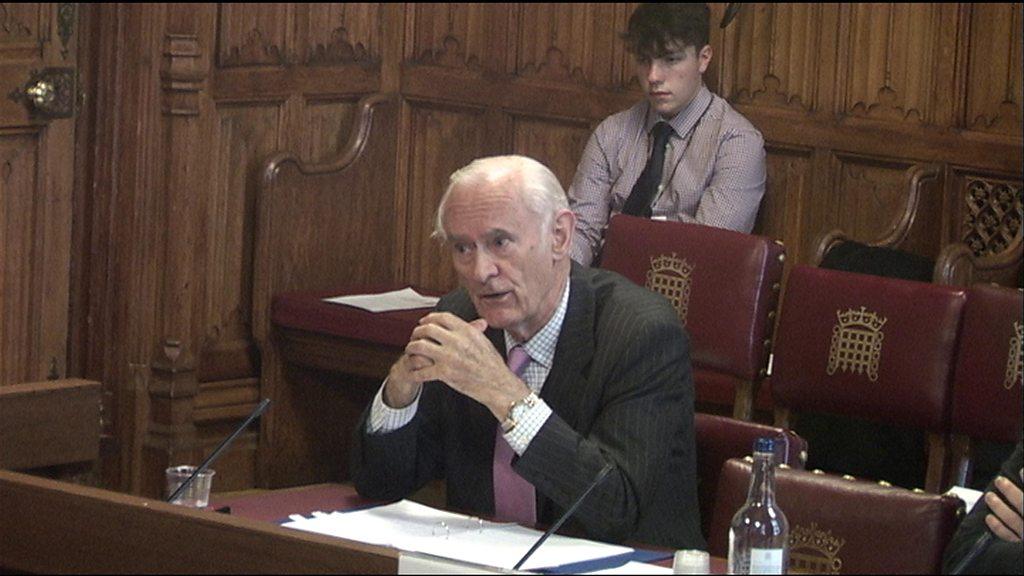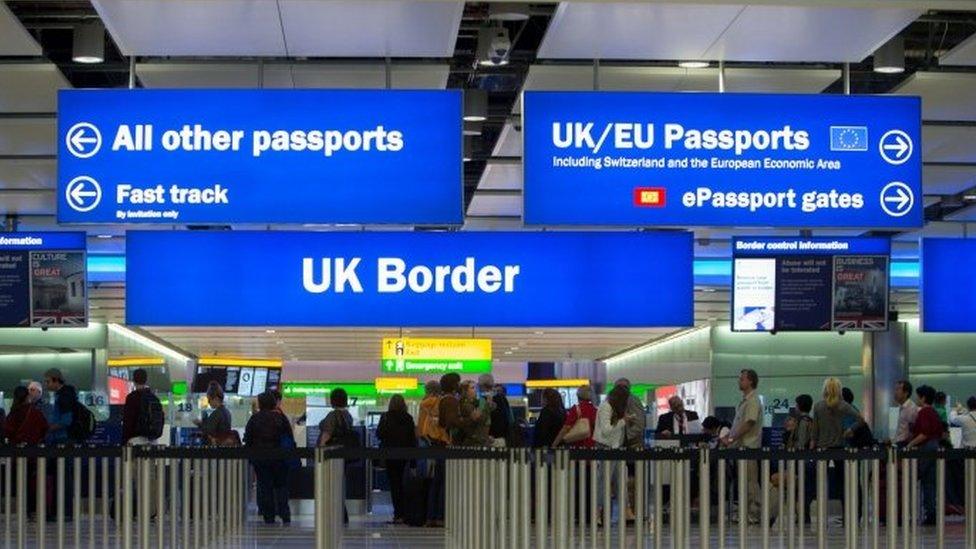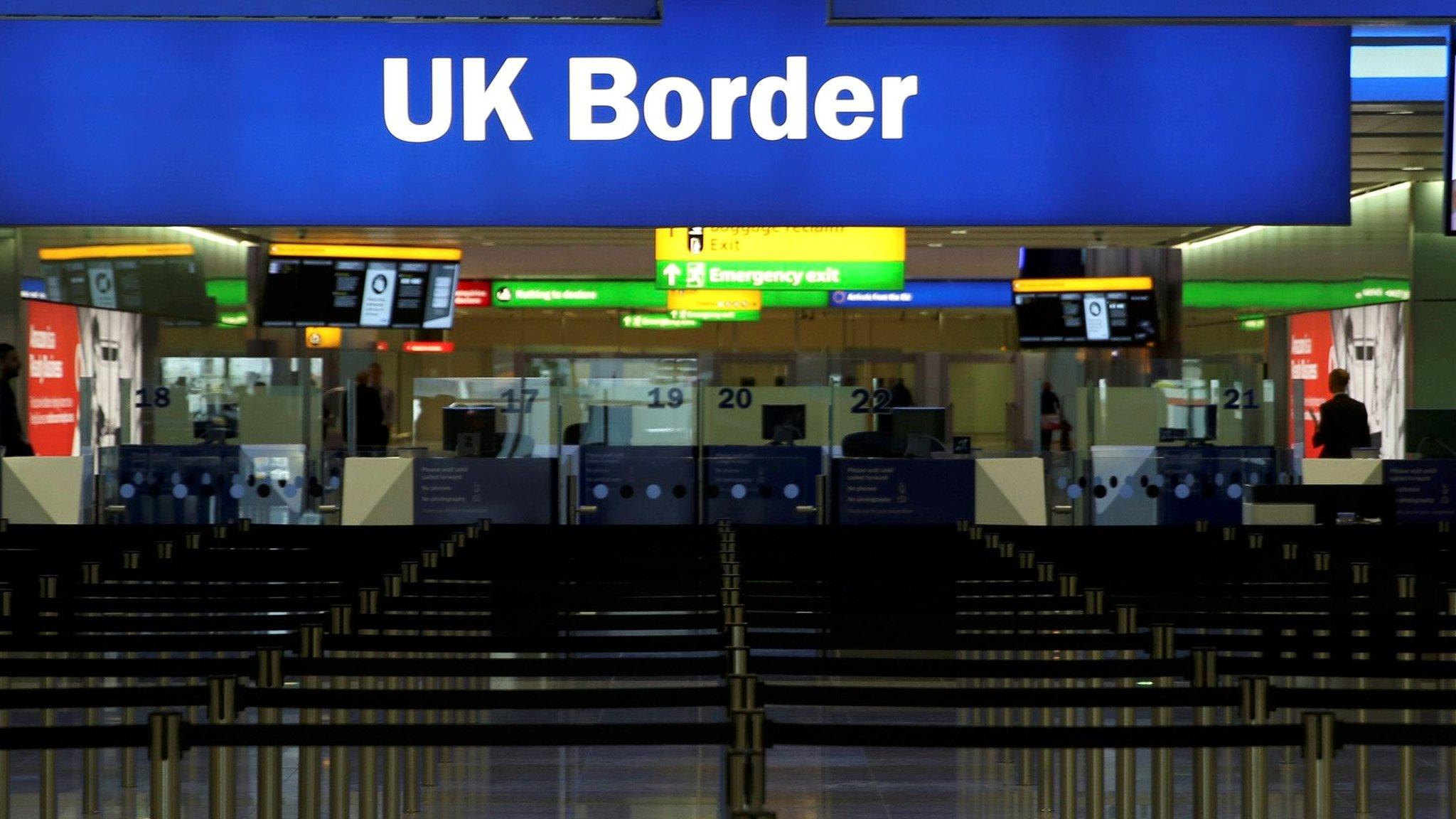Brexit: Ending free movement may not cut migration, says Lords report
- Published

Net migration to the UK may not fall as a result of ending EU free movement post-Brexit, a Lords report has said.
The EU home affairs sub-committee, external said that net migration - immigration minus emigration - was consistently higher from outside the EU.
An immigration system for when the UK leaves the EU has not yet been outlined by ministers.
The government said it was considering "various options" as to how EU migration might work.
It has pledged to reduce net migration to below 100,000 by 2020.
Prime Minister Theresa May has said she aims to trigger Article 50, to begin the two-year process of leaving the EU, by the end of this month.
In the report, the committee said: "Until end June 2016, migration to the UK from outside the EU was consistently higher than EU migration, even though the relevant policy levers are under national control.
"Restoration of national control over EU migration may or may not, therefore, deliver a reduction in overall net migration."
In the most recent official figures, covering the year to the end of September, both immigration and net migration from the EU were higher than that for the rest of the world for the first time.
Overall, net migration to the UK dropped to 273,000 in the year to September, down 49,000 from the previous year.
The committee said that cutting EU immigration is unlikely to provide a "quick fix" for low wages.
Factors such as the National Minimum Wage, National Living Wage and inflation were more significant in driving or impeding real wage growth for low earners, the report said.

It also said that extending the work permit system used for non-EU nationals to those from the EU would disproportionately affect some employers' ability to sponsor EU workers, and could result in labour shortages in areas including the NHS and horticulture.
The report endorsed the pursuit of a "two-way agreement", suggesting that offering preferential treatment to EU nationals in the UK's future immigration regime could increase the likelihood of securing a reciprocal approach to UK nationals in the EU.
Committee chairwoman Baroness Prashar said: "The precise manner in which the government proposes to 'end' free movement is a pivotal aspect of the United Kingdom's approach to negotiations with the European Union and could have far-reaching consequences for the UK's future trading relationship with the EU.
"Crucial sectors of the economy depend on EU migrant labour, so it is essential that any changes don't endanger the vibrancy of the UK economy.
"We therefore recommend a phased transition to avoid short-term shocks to particular sectors."
She added that the committee was "struck by the weaknesses and gaps in the UK's migration statistics".
A Home Office spokesman said: "We are currently considering the various options as to how EU migration might work once we have left and it would be wrong to set out further positions at this stage."
- Published30 December 2020

- Published28 February 2017

- Published23 February 2017

- Published29 December 2016

- Published14 December 2016